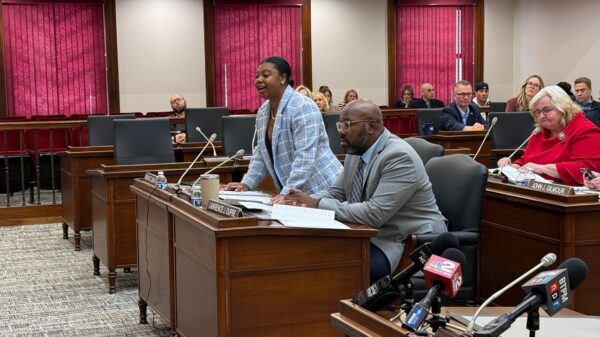UPDATE: A devastating government shutdown is now endangering the health and nutrition of millions of Americans as critical support programs face unprecedented cutbacks. As of November 1, 2025, families across the nation are grappling with the loss of essential financial aid that many rely on for healthcare and food.
On Fox News Sunday, anchor Shannon Bream highlighted the dire implications of the ongoing shutdown, noting that the lack of congressional action has plunged more than 40 million Americans into uncertainty regarding their health and nutrition. Programs like the Supplemental Nutrition Assistance Program (SNAP) are no longer receiving federal funding, leaving vulnerable populations—particularly children, seniors, and disabled individuals—without lifelines.
The ramifications of this situation are profound. Families across the country are already struggling to pay bills, with many now seeing zero dollars in their SNAP accounts. According to experts, this could lead to an immediate spike in hunger, putting immense pressure on food banks that are already overwhelmed.
“This will cause an unfathomable amount of suffering in our country,” said Dr. Richard Besser, president and CEO of the Robert Wood Johnson Foundation and former acting director of the CDC.
For context, over 24 million people benefit from health coverage through the Affordable Care Act, which has been significantly bolstered by federal tax credits. These credits have historically saved families an average of $800 annually, allowing them to afford healthcare and essential goods. However, with the government shutdown dragging into its fourth week, these crucial financial supports are now in jeopardy.
As the shutdown progresses with no clear resolution, Americans are left to wonder how they will manage their healthcare costs. Families are increasingly at risk of being unable to afford basic necessities such as food and medical care. Erin Jackson-Hill, a resident of Alaska, shared her struggles, stating that without the tax credits, she cannot afford health coverage despite working multiple jobs. Similarly, Casey McBlain, a single mother in Maine, has begun delaying payments on her utility bills just to feed her children.
Authorities are calling for immediate action. The USDA has a $5 billion emergency fund for SNAP, which many advocates are urging be utilized to alleviate the crisis. The stakes could not be higher—without prompt intervention from Congress, millions of American families will face severe consequences.
As Dr. Besser pointed out, this is not just a political issue; it is a human issue. The ongoing shutdown and the resulting loss of vital support systems are forcing families into impossible situations. With Congress and the administration failing to act, the future looks bleak for those who depend on government assistance for their health and well-being.
While leaders in Washington continue to stall, the public is left to deal with the fallout. The urgency for a resolution is palpable, and many are calling for Congress to work collaboratively to restore funding for essential programs like SNAP and the Affordable Care Act tax credits.
As this crisis unfolds, it is crucial for affected families and individuals to stay informed and advocate for their needs. The time for action is now, and the implications of inaction will be felt across the nation.





































































